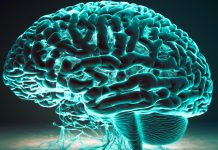Growing old is inevitable, but experiencing a significant cognitive decline isn’t. An encouraging piece of news uncovered by several studies that focus on people in their old age suggests that changing one’s lifestyle could increase the chances of having a sharp mind up until the age of 100.
Life expectancy has increased globally in the past decades. While a person in the 1960s could expect to live up to the age of 52.5, today, the average lifespan is 72 years. In the UK, where data about life expectancy has been collected for some time, a little girl could expect to live until the age of 42 in 1841, while in 2016 she could hope to reach the age of 83.
As life expectancy increases—and the population of the world is registering a steep ageing process—dementia (an umbrella term which refers to an irreversible and progressive cognitive decline) has become a major public health issue. In 2015, 47.5 million people suffered from dementia globally, and their number could reach 78 million by 2030 and 139 million by 2050, according to World Health Organization estimates. Even in the absence of illness, ageing decreases our cognitive functioning, as a result of changes in the structure of the brain.
We remember certain names with difficulty, we forget birthdays or appointments we made, we wait for longer for our memory to serve us with a certain word, or our ability to multitask decreases. We focus with greater difficulty, we lose our train of thought in a conversation and we become more overwhelmed by making decisions. Nevertheless, some people manage to preserve the health of their brains until later, surprising everyone with their mental sharpness, while researchers try to identify which factors protect the brain for longer periods of time.
What happens to our brains when we age
Weighing around 1.4 kilograms (meaning approximately 2% of the body’s weight), the brain needs a high degree of energy consumption, using 20% of the oxygen in our blood flow and 25% of the glucose, according to the American College of Neuropsychopharmacology.
Throughout life, the brain changes more than any other part of the body. It starts to form around four months after conception, and during the first years of life, it undergoes the formation of over one million new neural connections every second. The size of the brain increases fourfold during preschool years, reaching 90% of its adult volume, by the age of six. The brain functions at its highest capacity around the age of 22 and starts following a descending trajectory once we reach the age of 27, with the decline following a constant and slow path all throughout our lives.
As we age, certain parts of our brains shrink, especially those that are involved in the process of learning and other complex mental activities. The way that neurons communicate with each other can also become less efficient in certain parts of the brain, and the blood flow to the brain diminishes, while the level of inflammation (which kicks in whenever the body is protecting itself against an illness or a type of aggression) increases.
The size of the brain starts to diminish after the age of 30, and the rate of contraction increases after the age of 60. The cerebral cortex, the external layer of the brain that is essential for the higher-level processes, becomes thinner as we age, which is correlated with cognitive decline and Alzheimer’s disease.
The thinning is visible particularly in the frontal lobe, which is responsible for recognizing the content of information (through memory), impulse control, problem-solving, social interaction, and movement, but it can also be noticed in certain parts of the temporal lobe, which is responsible for processing words, speech, and writing. In fact, the parts of the brain which are the last to mature are the first ones that start to age.
A sharp mind until the age of centenarian
Almost 15% of 70-year-olds, 35% of people over 90 years old, and 40% of those who reach 100 develop some type of dementia. However, there are also people who maintain a sharp mind even when they reach 100. A study published in JAMA Network Open in January 2021 showed that there are several factors that can be associated with protecting the health of our brains until the end of our lives.
Researchers extensively tested 330 centenarians whose caregivers confirmed that they had retained their mental agility, following them until the time of death or until the subjects were no longer able to participate in the study. The results showed that the participants did not experience any major decrease in their cognitive function, apart from slight memory loss. They demonstrated their abilities to make decisions and execute plans, they managed to recreate a shape by drawing, enlist objects that begin with a certain letter, and avoid getting distracted when they fulfilled a certain task.
For 44 of the subjects, autopsies were performed after death to study amyloid plaques (parts of protein which grow, forming deposits which interrupt the communication between neurons and lead to their degradation), a marker of Alzheimer’s disease. None of the centenarians presented symptoms of Alzheimer’s disease, though in many cases deposits of proteins were discovered at the level of the brain.
Even the people who had genes that are typically associated with an increased risk of developing Alzheimer’s showed no signs of cognitive decline. Trying to find the common traits of those who participated in the study, the researchers noted that the majority had a higher level of education, were physically active and had maintained good hearing and sight.
Alzheimer’s is not an inevitable consequence of ageing, maintains geriatrician Thomas Perls, emphasising the fact that even in the case of people with a genetic predisposition, the disease can be delayed or even prevented through a healthy lifestyle, which includes regular exercise, maintaining a normal weight, reducing the consumption of red meat, avoiding smoking and engaging in activities that challenge the brain, like studying a foreign language or a musical instrument. Optimising one’s auditory capacity is also essential, because hearing loss results in losing touch with the environment and, implicitly, cognitive alteration, says Perls.
The secrets of SuperAgers and the need to conduct studies on young volunteers
The study of Dutch researchers is part of a series of studies that try to find out what are the secrets of the “SuperAgers”—people who reach their 80s, 90s or even 100s with their memory and other cognitive functions almost intact. Cognitive decline, though very common in old age, is not inevitable, explains professor Emily Rogalski, from Northwestern University, who coordinates the SuperAgeing study.
By analysing people aged between 87 and 107 with memories just as good as those of people decades younger, researchers have noted that SuperAgers registered a more reduced loss of their brain’s volume, compared to people of the same age, thus proving to be more resistant to memory loss typical of their age. The results show that the thickness of the cortex of SuperAgers was bigger, and autopsies done on the people who agreed to have their brains donated after death, have shown an abundance of von Economo neurons, which are thought to be connected to social behaviour.
Researchers don’t yet know whether unaltered cognitive function that goes beyond old age is the result of unique biological mechanisms or of a healthier brain early in life, which results in slower decline that is detectable at a very late stage, admits neurologist David Salat, from the Harvard Medical School in Boston. Future studies are awaited so that they can offer an answer to this question. In any case, the study of cognitive changes needs to start at an early age, declares Salat, explaining that some of the studies indicate that factors such as arterial hypertension seem to influence the brain much earlier on than specialists expected.
There are already studies that explore the way in which different factors which intervene during middle age contribute to cognitive resilience in older age. “The brain is like a large network of busy cities—we can better maintain connections among cities by taking better care of overall health,” notes Prashanti Vemuri, a researcher at the Mayo Clinic in Rochester, Minnesota.
Exercise keeps the brain in shape
Physical activity can provide a person with a cognitive reserve that can protect the brain from dementia concludes neurology professor Aron Buchman, coordinator of a study that looked at 454 ageing adults over two decades. Data show that an active lifestyle (physical, cognitive and social) preserves the cognitive abilities of ageing people, although researchers have not identified the protection mechanisms or even the types of physical exercise that are most efficient. In the end, the fact that they work counts more than how it happens, said Keith Fargo, director of scientific programs within the Alzheimer’s Association.
A preliminary study coordinated by neurologist Michelle Voss, from the University of Iowa, showed that even a single 20-minute round of physical exercise can lead to significant changes in the way the brain functions, as long as the physical exercise is intense enough to produce sweat. The results have shown that the memory of the participants was better at the end of the session, while brain scans showed that the connections between different cortical regions of the brain had become stronger. Researchers say that the immediate changes indicate the results that would be reached after three months of regular physical exercise.
Physical exercise can change the ways in which important regions of our brain communicate with each other by improving the functioning of memory and thinking processes, showed a study published in 2021, which involved African-American elders who trained in aerobics classes for 20 weeks.
A study from 2013 discovered that physical activity can increase the blood flow to the brain in elderly men (this is associated with a better score in memory and thinking tests than in sedentary persons), including during the time when the person is not physically active.
Regular exercise improves the functioning of the brain in healthy people as well as in people with slight cognitive deficiencies. The functions of the brain that benefit the most are those associated with “executive control” (such as multitasking or planning or problem solving), concluded researchers Arthur Kramer and Kirk Erickson, after analysing over 50 scientific studies. Positive results have also occurred in the case of people who go on a brisk walk twice or three times a week, over a period of six months. One of the studies discovered that people in the early stages of Alzheimer’s disease who did aerobic exercises had less cerebral atrophy.
Any physical exercise, from biking to swimming, that maintains the cardiac rhythm at least at 65% of the maximum capacity for over 30 minutes, seems to be neuroprotective, reducing the risk of getting other illnesses, notes Kramer. Physical exercise improves the neuroplasticity of the brain—the capacity to develop new neural connections—by improving the response of the brain to strokes, Alzheimer’s or head trauma caused by falling, which becomes more and more likely as ageing progresses. Although researchers need more information to understand the mechanisms by which physical activity influences brain health, what is certain is that physical exercise is essential in maintaining cognitive capacity, concludes Kramer.
Practical ways of keeping a sharp mind until the age of 100
Studies suggest that keeping a good connection with family and friends and participating in significant social activities contribute to keeping the brain healthy and seem to reduce the risk of dementia. We do not yet know how socialising contributes to reducing cognitive decline; perhaps interacting with others, which needs effort and energy, stimulates the brain, or maybe our social connections act as a buffer against stress. In any case, there is data showing that loneliness increases the risk of cognitive decline in old age.
A 2007 study of more than 2,000 women over a four-year period concluded that study participants with a larger social network and daily social interaction had a significantly lower risk of developing dementia.
The feeling of loneliness can be considered to be “a major risk factor” for dementia, according to a Dutch study published in the Journal of Neurology, Neurosurgery and Psychiatry. Elders who experience feelings of loneliness have a 64% higher risk of developing dementia, concluded the authors of the study, who emphasised the fact that the perceived lack of social connection, rather than loneliness itself, is associated with a higher risk of dementia.
Persistent loneliness in middle age (45 to 64 years) seems to make people more susceptible to developing dementia and Alzheimer’s disease at a later stage, suggests a study published in 2021. Transitory loneliness has been associated with a lower risk of developing dementia and Alzheimer’s than persistent loneliness; while the second type of loneliness endangers the health of the brain, the first type increases psychological resilience in the aftermath of adverse events in our lives, explains Professor Wendy Qiu, one of the authors of the study.
Although researchers are still studying the activities that increase the chances of having a sharp mind until old age, the best answer at this point in time is that difficult or even exhausting tasks can help us achieve this objective, notes Lisa Feldman Barrett, professor of psychology at Northeastern University. This is about physical tasks as well as mental activities, but the road to becoming a SuperAger is not easy, because difficult tasks make us feel tired and frustrated.
Nevertheless, laboratory experiments show that important regions of the brain intensify their activity when we become engaged in activities that require effort, and SuperAgers have the capacity to overcome the temporary discomfort of intense effort, with the result that the brain maintains its youth, explains Barett.
The living environment, positive experiences, a high level of education and activities that challenge the mind are factors that protect brain health. Experts believe that there is a connection between the level of education and keeping a strong memory, as the person is used to being more mentally active. Having a hobby, learning new things (a musical instrument, a foreign language), and volunteering are all ways that can help keep the mind in good shape.
One of the pieces of advice offered by specialists at Harvard Medical School for memory preservation is about using all the senses to learn something new. In one study, volunteers were shown a series of emotionally neutral images, which were associated with a certain type of smell, and later on they were exposed to another set of images, while being asked to indicate the images from the first set. The results showed that remembering the images associated with a smell went very well (especially when the smell was a pleasant one), the explanation being the activation of the piriform cortex, the main region of the brain that processes smells.
Surprisingly, those who believe that they can keep their memory in good shape, without taking into account the inevitability of cognitive degradation, manage to keep their minds sharper, say researchers at Harvard Medical School.
Repetition is very important when we want to memorise something. In fact, this is one powerful learning tool, as long as it is used adequately: repetition is not efficient if it occurs several times in a short period of time, but it can prove its efficiency when it occurs over longer periods of time (from once per hour to once per day), especially when what needs to be remembered is complicated information.
Concentrating on learning new things is facilitated by relieving memory of the routine information baggage—where the car keys are, when someone’s birthday is, what urgent shopping needs to be done. Whenever we take notes or use apps on our phones to remind us of important events or details about our daily tasks, we keep enough mental energy that can then be invested in learning something new.
Complex activities generate enthusiasm and demand creative thinking. A study published in Psychological Science has shown that adults aged between 60 and 90 who engaged in new and complex activities (16 hours per week for 3 months) obtained better results in memory tests than those who got involved in familiar activities, such as reading or crossword puzzle solving.
Playing an instrument can help prevent cognitive decline, according to researchers from Baycrest Health Sciences in Toronto. The study has shown that learning to play a musical instrument leads to better hearing, and the changes that occur in the brain indicate a rewiring of the brain in order to compensate for injuries or diseases that could diminish a person’s ability to fulfil a task.
A healthy diet is also a key component of brain health. Studies have shown that there is a link between the presence of omega-3 and omega-6 acids in the blood and healthy ageing of the brain, or that the Mediterranean diet is associated with a lower risk of memory impairment.
Eating foods high in lutein (a nutritious element that can be found in leafy greens, avocados, and eggs) may protect against cognitive decline, according to a study conducted by a team at the University of Urbana-Champaign, Illinois. Since cognitive decline can start fairly early on, with its effects being noticeable during our third decade of life, we should encourage subjects to initiate changes in their lifestyle early on, so that they may get maximum benefits, declared researcher Anne Walk.
One of the images we hold of the process of ageing is related to a shrinking of our life, our interests, and even our physical space. Beyond the limitations inherent to the process of ageing, there is also staying in the comfort zone (which is familiar to younger people as well), which is both normal and a losing card. It’s easy to stick to what you already know, to avoid new experiences and people, but that means losing what you already have and “starting to make your world smaller than it needs to be” instead of allowing yourself to be open to it, concludes geriatrician Anne Fabiny.
Carmen Lăiu is an editor at Signs of the Times Romania and ST Network.




















